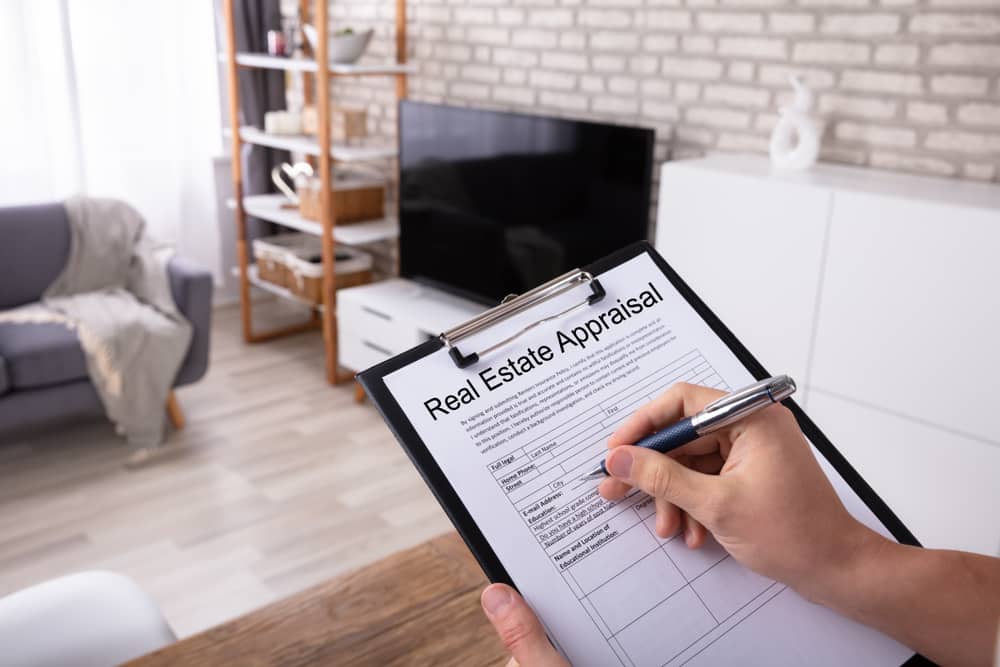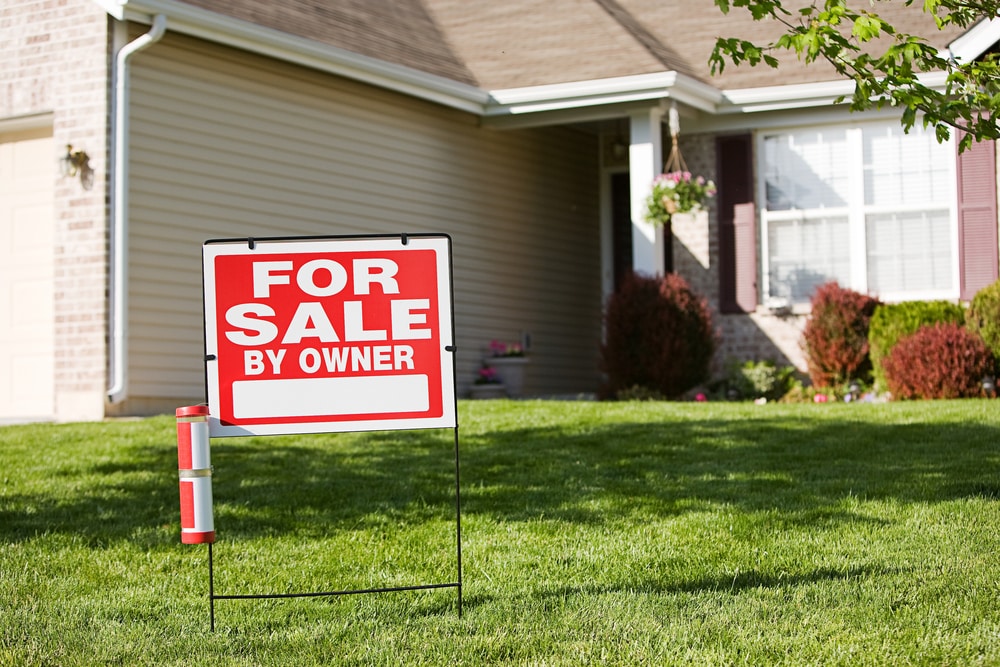
Published
What is a pre-listing appraisal? | Who it works best for | Other home value options | How appraisals work | Next steps
A pre-listing appraisal or pre-appraisal is a professional home value estimate a seller gets before listing a home for sale to set a fair price.
In most cases, a pre-listing appraisal isn’t worth the money or trouble. A free home value estimate and a comparative market analysis (CMA) usually provides sellers with enough information.
A professional appraisal makes sense in special situations, like if you’re selling for sale by owner (FSBO), or if your home has unique features that make it hard to value.
Here’s everything you need to know about getting an appraisal before selling, including who it works best for, and your other home value estimate options.
What is a pre-listing appraisal?

A pre-listing appraisal is exactly what it sounds like: an appraisal you get before listing your home for sale. It differs from a buyer’s appraisal, obtained after an offer is accepted.
An appraisal is a professional analysis of a home’s fair market value, completed by a licensed real estate appraiser. It can help you determine a fair listing price or spot issues holding back your home’s value.
A completed home appraisal report is usually 10-20 pages long and includes the following information:
- Subject property information. Your home’s main features, including square footage, beds and baths, recent renovations and upgrades, condition, lot size, and location.
- Comparable home sales data. Recent home sale prices in your area, usually pulled within the past three to six months.
- Photos from the appraiser’s inspection. Including details on the condition of your home’s major components, such as its roof, HVAC system, and plumbing.
A pre-appraisal often costs between $350 to $500. However, actual costs depend on factors like your location, and the condition, size, and age of your home.
Appraisals can take several hours or longer to complete, depending mainly on your home’s size, and it usually takes another few days to get the report back.
Who does a pre-listing appraisal work best for?

1. Sellers who don’t plan to use an agent
Mispricing a listing is one risk of selling without a realtor, so a pre-listing appraisal is a viable option for FSBO sellers.
What about a free CMA report? If you use a listing agent, they should provide you with a CMA during your initial interview to help guide your pricing strategy.
Most agents provide sellers with a free CMA because they want to win your business. We don’t recommend requesting a free CMA from an agent if you have no intentions of hiring one.
2. Hard-to-value homes
An appraisal can serve as a useful negotiating tool with a potential buyer who tries to offer you a price below your home’s fair value.
Not every home is easy to value through a CMA report or home value estimator. Those valuation methods rely primarily on recent comparable home sales or “comps”, but not every house has good comps.
Appraisers usually know how to value homes in areas with fewer comps better than real estate agents do. Valuing homes is all an appraiser does, and they’ve completed additional training.
For example, an appraiser can value a rural home based on its square footage, lot size, and outbuildings (barns, sheds, or garages), or value an investment property by using the income approach.
Appraisers also tend to have more experience valuing a home with unique features. That includes homes with luxury kitchens and bathrooms, converted garages and attics, and second-story additions.
3. Sellers who disagree with their agent
Did your realtor seriously undervalue your home in a CMA report? A pre-listing appraisal can provide an objective, third-party opinion to confirm or deny the valuation.
The big risk is that the appraiser’s value comes in the same (or lower) as your agent’s, potentially wasting your valuable time and money.
However, it might still be worth the risk if the appraisal surfaces issues with your home that hold its value down. You can make the required fixes and boost your home’s value before putting it on the market.
Pre-listing appraisal alternatives
Here are some potential home valuation alternatives for sellers.
Pre-listing appraisal vs. home value estimators
A home appraisal is more accurate than any online home value estimator. Here are a few reasons why:
- A licensed appraiser hand-selects comparable home sales, only choosing the most recent and relevant ones.
- Appraisers make value adjustments based on the home’s size, condition, and upgrades, following an in-person visual inspection.
- A home value estimator pulls automated home sales data based on an algorithm.
- An estimator might not give your home credit for its upgrades and renovations.
However, a home value estimator is still a useful tool to get a ballpark estimate of your home’s value, especially if you compare estimates from multiple websites. Some estimators provide you with more than just a home value and include relevant local sales information and market trends.
Pre-listing appraisal vs. CMAs
Appraisals are completed by a state-licensed professional, while a licensed real estate agent or broker completes a CMA report. Both reports can provide sellers with an accurate opinion of value.
Appraisals often cost between $350 to $500 or more, while CMAs are usually free and provided by a realtor during your initial interview.
Finally, appraisals may take several weeks to complete, while a CMA can often be completed in just a few days (if not sooner).
You probably don’t need to get an appraisal before selling if you’re working with an agent. Most realtors can provide a free, accurate CMA report to help you set a fair list price.
Pre-listing appraisal vs. broker’s price opinion
A broker’s price opinion (BPO) is a home valuation report completed by a licensed realtor or broker, similar to a CMA.
However, unlike a CMA, you usually have to pay for a BPO ($150 to $250). And BPOs are completed by real estate professionals who have completed training through the National Association of Broker Price Opinion Professionals (NABPOP).
Like pre-listing appraisals, a BPO is a legitimate option for FSBOs who need help deciding on a listing price. They are also commonly used by homeowners who need to eliminate private mortgage insurance (PMI) from a home loan.
How do pre-listing appraisals work?

Step 1. Set up the appraisal
Your first step is to find and contact a licensed appraiser to set up an appointment.
You can find a local real estate agent to help you get in touch with appraisers. If you don’t plan on working with an agent, you can search for appraisers on sites like HomeAdvisor, or browse for certified appraisers online.
Step 2. Let the appraiser inspect your home
The appraiser comes to your house and spends an hour or two walking through the inside and outside. They examine its condition and measure square footage.
Now is a great time to point out any major upgrades, renovations, additions, or repairs made since buying the house.
Expect the appraiser to take plenty of photos of your home. It helps the appraiser complete the report and choose relevant comparable home sales.
Step 3. Wait for the completed report
The appraiser spends a few days putting the report together, evaluating your home, and the recent sales price of properties in your area.
Some appraisers are busy or work much slower than others. It could take at least a week or more to receive the report.
Once completed, the appraiser should contact you with payment instructions. You can usually view the report after paying the appraiser.
Step 4. Download and analyze the report
Most appraisals can be downloaded and viewed through your email or a website.
Appraisal reports are usually long (20-25 pages) with information on recent comparable home sales, photos of your house and surrounding properties, and neighborhood information.
Your report should contain a summary page that provides you with an appraised value, the date of the valuation, as well as a summary.
The appraiser’s contact information should be on the photo, and you can call or email them with any follow-up questions.
What happens if my home appraises low?
You can challenge the appraiser’s opinion – but only if you have a good reason. Examples include:
- The appraiser made an error calculating your home’s square footage.
- They failed to give you credit for your home’s recent upgrades or renovations.
- They used the wrong comparable home sales.
What if the appraiser insists on their valuation even after your challenge? You can ask a realtor for a second opinion, or hire a new appraiser (depending on your budget and timeline).
Next steps
Ready to get things in motion? Here’s what to do next.
Check your online home value estimate
The best home value estimators can give you a rough estimate of your property’s value based on automated home sales data. It’s a good starting point if you just want a ballpark estimate.
Reach out to a local real estate agent for professional advice
An agent can advise you on your best course of action – a CMA, pre-listing appraisal, or broker’s price opinion. Our guide explains how to find a realtor for a free CMA report.
Order a pre-listing appraisal
If your agent advises you to get an appraisal before selling, they should have plenty of appraisers for you to consider. If not, call a mortgage lender for help or search for licensed appraisers in your area.
Analyze the home value report
A CMA report, broker’s price opinion, or appraisal report should help you decide on a fair listing price, and pinpoint issues holding back your home’s value. Ask your agent if making any upgrades or renovations will improve your home’s value before listing.
Prepare to sell your home
Our guide explains how to sell your house in 12 steps, and how to prepare your home for photos and showings.
FAQs
Should I get my house appraised before selling it?
Most homeowners do not need to get a pre-listing appraisal. A licensed real estate agent usually provides sellers with a free comparative market analysis report to help guide their pricing strategy. However, it could make sense to order an appraisal if you have no plans on using an agent. Learn more about pre-listing appraisals and who it works best for.
What hurts a home's appraisal value?
Things that can hurt your home's appraisal value include:
- A location with few comparable home sales due to a slowing real estate market.
- An outdated home with older appliances and fixtures.
- A messy, dirty home with clutter.
- A home with non-functioning components like a broken HVAC system or a leaking roof.
- An undesirable floor plan or unusual layout.
Thankfully, there are several things you can do to prevent a low appraisal, including making upgrades, renovations, and repairs (and providing the appraiser with proof), and improving your home's curb appeal.
How accurate are home value estimators?
Home value estimators are usually not as accurate as an appraisal or CMA report from an agent. We've found that estimators have a median error rate of between 2% to 3%, which means they could be undervaluing your home by thousands of dollars.
However, home value estimators can be useful tools to get a quick ballpark value estimate before moving forward with a more formal valuation method, like a CMA or appraisal.
Learn which home value estimators are the most accurate.
Do houses usually appraise for more than the selling price?
A high appraisal means an appraiser thinks a house is worth more than what a buyer has agreed to pay for it, while a low appraisal means a home's value comes in below its selling price.
Low appraisals are more common in a seller's market where housing prices are skyrocketing vs. a buyer's market. 21% of all real estate contracts don't close as planned due to appraisal issues, according to the National Association of Realtors May 2022 Realtors Confidence Index survey.
Find a realtor for advice on how to maximize your home's appraisal value.
Related links
Best Home Value Estimators: What are the most accurate home value estimator tools? We rank the top free estimators, including options from Zillow, Redfin, Realtor.com, and HomeLight.
What is a CMA in Real Estate?: A CMA is more accurate than a home value estimator. It’s a professional home value estimator from a licensed real estate agent or broker. Learn more about CMAs, including how to get one for free.
How to Determine a Home’s Fair Market Value. Wondering about the difference between appraisal value and fair market value, and how to calculate it? Find out here.
How to Find a Realtor in 2022: Our guide breaks down the most effective ways to find a real estate agent, including one option that can save you thousands of dollars on realtor commission.
How Do Appraisals Work?: What is a home appraisal and how does the process work? Learn more about appraisals, including how to prepare for one as a seller and what to do if an appraisal comes in low.


Leave a Reply